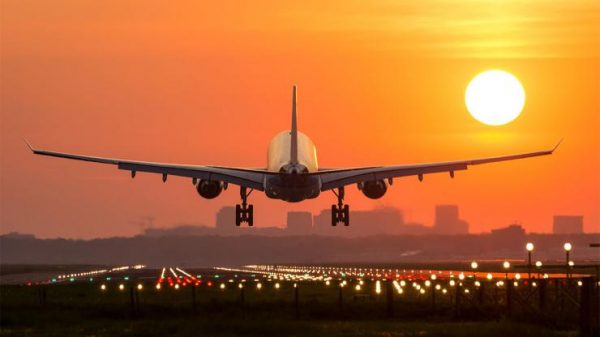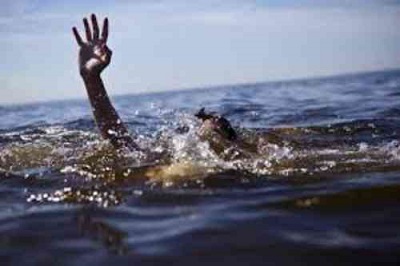SHIPPERS GUIDE
Understanding Business Opportunities In Nigerian Maritime Industry
Shippers Guide is the learning page of MMS Plus. Here we answer the five W’s and H of several issues in the shipping industry. This week focuses on knowing the business opportunities and the relevant laws that applies to doing business in the maritime industry.
What are the primary laws applicable to the maritime industry in Nigeria?
The primary laws applicable to the maritime industry in Nigeria are: The Merchant Shipping Act 2007; the Coastal and Inland shipping (Cabotage) Act 2003; the National Inland Waterways Act, N47 Laws of the Federation of Nigeria (LFN) 2004; the Nigerian Maritime Administration and Safety Agency (NIMASA) Act 2007; and the Admiralty Jurisdiction Act of Nigeria, A4 LFN 2004.
What are the types of business that a vessel owner can participate in in Nigeria?
A vessel owner can participate in the business of coastal trade or inland waters trade.
Is it important for a ship to be registered in Nigeria before it can do business?
Yes, it is required for a ship to be registered in Nigeria before it can do business and operate commercially within Nigeria. Unless a vessel is wholly owned by Nigerian citizens, built and registered in Nigeria, such a vessel is not authorized to engage in domestic coastal carriage of cargo and passengers within the coastal territorial waters, or any point within the waters of the exclusive economic zone of Nigeria.
What are the types of vessels eligible for registration?
The following types are eligible for registration: passenger vessels, crew boats, bunkering vessels, fishing trawlers, barges, off-shore service vessels, tugs, anchor handling tugs and supply vessels, floating petroleum storage, dredges, tankers, carriers and any other craft or vessel used for carriage on, through or underwater of any persons, property or substance whatsoever.
Who can own a registered vessel in Nigeria?
Only Nigerian citizens, partnerships and companies registered in Nigeria and having their principal place of business in Nigeria.
Can a company not totally owned by Nigerians register a vessel for use in Nigeria’s domestic trade?
The ownership requirement under the Cabotage Act provides that a company must either be wholly and beneficially owned by Nigerians or the controlling interest of such company be held by Nigerians. A vessel is wholly and beneficially owned by Nigerians where all the shares in the vessel and the company are held by Nigerian citizens free from any trust or obligation in favour of any person not a citizen of Nigeria. A vessel is owned by a company in which Nigerians have the controlling interest where the percent of shares in the company owned by Nigerian citizens is not less than 60%.
What are the types of ship registration applicable in Nigeria?
In Nigeria, the following types of registration are applicable: Provisional Registration, Flag Registration, Bareboat Registration (flag/cabotage), Cabotage Registration (Wholly Nigerian Owned, Joint Venture, Foreign Category).
Does cabotage mean that foreign vessels are no longer allowed to trade in Nigerian waters?
Foreign vessels are allowed to trade in Nigerian waters where they make an application to the Minister for waiver to trade and the Minister is satisfied that there is no wholly Nigerian owned vessel that is suitable and available to provide the services or perform the activity described in the application. In response to the application, the Minister is empowered to grant such foreign owned vessel a waiver to operate and carry on activities in Nigerian waters.
What is a waiver?
A waiver is a special dispensation that permits a foreign ship or crew member to participate in the cabotage trade, where there is no Nigerian with the capacity to perform the contract.
Under what circumstances can a foreign vessel be granted waivers?
A foreign vessel may be granted waivers where (i) there is no wholly Nigerian owned vessel that is suitable and available to provide the services or perform the activity prescribed in the application; (ii) where there is no qualified Nigerian officer or crew for the position specified in the application and (ii) no Nigerian shipbuilding company has the capacity to construct the particular type or size of vessel specified in the application.
Every waiver application is sent the Ship Registry which must confirm if there are any Nigerian owned ships with the same capacity to perform the contract sought to be performed by the foreign owned ship.
What are the applicable types of waivers?
The Minister for Transportation is empowered to grant the following types of waivers:
a waiver on the requirement for the vessel to be wholly owned;
a waiver on the requirement for the vessel to be wholly manned by Nigerians; and
a waiver on the requirement for the vessel to be built in Nigeria.
Does the waiver certificate granted by the Minister allow a foreign owned vessel to operate indefinitely in Nigerian waters?
The certificate is valid for only one year. After that, a renewal application must be submitted and the circumstances reassessed.
Is the waiver regime indefinite?
NIMASA launched a five-year cabotage cessation plan in 2019 aimed at ending the grant of cabotage waivers and ensuring full implementation of the Coastal and Inland Shipping (Cabotage) Act, 2003. This means that in the next five years, there are a number of waivers that NIMASA would no longer grant.
Does Cabotage affect Nigerian seafarers?
The Cabotage does prohibit the employment of foreign crew on board vessels trading in Nigeria’s coastal waters, even when such a vessel is owned by a Nigerian company.
What type of business is the inland waterways trade in Nigeria?
Inland waterways trade refers to trade that is carried on in areas that are declared Federal navigable waterways. These include rivers and their tributes, distributaries, creeks, lakes, lagoons and intra-coastal waterways specified in the Second Schedule to the National Inland Waterways Act.
Which regulatory agency is in charge of Inland Waterways Trade?
The National Inland Waterways Authority (NIWA) is the body responsible for regulating inland waterways trade in Nigeria and for granting licences to private inland waterways operator.
What are the special registers that a vessel may be registered in?
The Minister for Transportation is authorized to maintain in the office of the Registrar of Ships a separate register for vessels intended for use in the domestic and inland waters trade to be called Special Register.
The following Cabotage Registers have been opened in the Nigerian Ship Registry: Special Register for Cabotage (Nigerian Wholly Owned Vessel); Special Register for Cabotage (Bareboat Chartered Vessel); Special Register for Cabotage (Joint Venture Owned Vessel); Special Register for Cabotage (Fully Foreign Owned Vessel); and Special Register for Cabotage (Exempted Vessels).
There are other types of registers provided for under the Merchant Shipping Act. These registers are: Register for Merchant Ships, Register for fishing vessels, Register for ships under construction, Register for ships under the bareboat charter and other charters exceeding 12 months, Register of licensed ships below 15 gross tons, Register for Floating Production Storage and Offloading (FPSO) and Floating Storage and Offloading (FSO).
Is there any difference between cabotage and flag registration?
Flag registration grants Nigerian citizenship on a ship and the right to fly the Nigerian flag while cabotage registration allows the vessel to trade in Nigerian waters.
What is the minimum share capital required of a company involved in the business of cabotage?
The minimum share capital required for such companies is 25million Naira.






